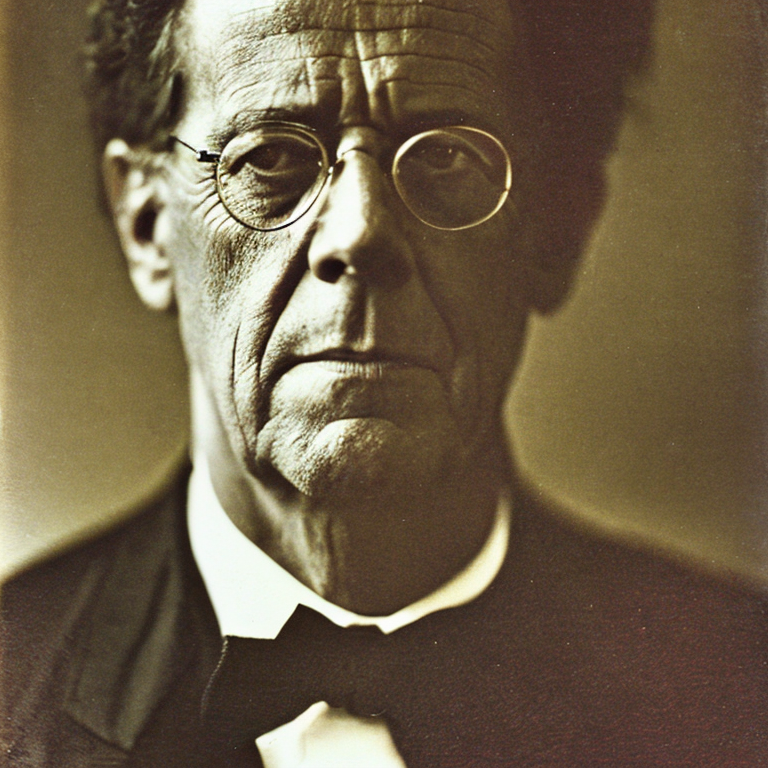Mahler: The Musical Giant
Gustav Mahler is one of the most well-known and influential composers of the late Romantic period. He is perhaps best known for his symphonies, which are some of the most complex and emotionally charged pieces of music ever written. His music is a testament to his extraordinary talent, and it continues to have a huge impact on classical music today.
Gustav Mahler was born in 1860 in Bohemia (now the Czech Republic). His father was a Jewish innkeeper, and his mother was a talented amateur musician. Mahler showed an early interest in music, and he received his first music lessons from his father. He went on to attend the Vienna Conservatory, where he studied composition and conducting.
Mahler had a long and successful career as a conductor. He worked for a number of prestigious orchestras, including the Vienna Philharmonic and the Royal Concertgebouw Orchestra. He was a major figure in the development of the modern symphony orchestra, and he was the first conductor to perform all of Beethoven’s symphonies in one concert. He was also the first conductor to perform the music of Richard Wagner in Vienna.
Mahler’s compositional output was prodigious, and he wrote a total of nine symphonies, as well as several other works such as symphonic poems and song cycles. His symphonies are some of the most expansive and ambitious works in the classical canon. They are often compared to the music of Beethoven, and are full of drama and emotion.
Mahler’s music is known for its intense psychological depth and its ability to communicate emotions in powerful ways. He was a master of combining different musical styles, and his works often contain elements of folk music, classical, and even jazz. His music is also deeply spiritual, and he often used religious texts in his works.
Gustav Mahler’s music has been influential for generations of composers, and his works are still performed frequently in concert halls around the world. He has had a major impact on the development of classical music, and his works continue to be studied, interpreted, and performed. He was a true genius, and his music will continue to inspire and move people for generations to come.
Gustav Mahler: Stirring Up Controversy
Gustav Mahler is one of the most celebrated and controversial composers in classical music. His highly emotive music, often featuring grand orchestral forces, and his progressive approach to composition have made him the subject of intense academic debate and criticism.
One of the most contentious aspects of Mahler’s work is his use of so-called “program music” – pieces which are intended to evoke a certain atmosphere or scene, such as “The Song of the Earth”, which Mahler composed as a reflection on death. This style of composition was heavily criticized by traditionalists and academics, who argued that it was too emotive and subjective.
Mahler’s use of chromaticism, particularly in his later works, has also caused controversy. He often used chromaticism to create a sense of tension and drama, but this was seen by some as excessive and overly dramatic.
The large scale of Mahler’s works has also been a point of contention. His symphonies often feature large orchestral forces and lengthy running times, and many critics have argued that this detracts from the intensity of the music.
Finally, Mahler’s use of “modern” musical devices such as polytonality and atonality has been seen by some as being too experimental and avant-garde. His music has often been seen as at odds with the traditional symphonic form, and this has stirred up debate among academics and music lovers alike.
Despite the controversy that surrounds his work, Mahler’s compositions remain some of the most beloved in the classical canon. His use of emotion and experimental techniques have inspired generations of composers and listeners, and his legacy continues to live on to this day.
Mahler’s Mystery: Unveiled
• Gustav Mahler was born in 1860 in Bohemia, which is part of modern-day Czech Republic.
• His main musical influences were Richard Wagner, Franz Schubert, Johannes Brahms, and Anton Bruckner.
• Mahler composed symphonies, operas, songs, and chamber music.
• He was the first conductor to record all of his symphonies and the first to perform the works of Bruckner in the United States.
• Mahler was the musical director of the Vienna Court Opera from 1897 to 1907.
• He was an advocate of “total theatre” and believed in the integration of music, drama, and stage design.
• He wrote the song “Ich bin der Welt abhanden gekommen” (“I am Lost to the World”) in 1901.
• Mahler’s works often explore themes of mortality, the afterlife, and the struggle between the individual and the outside world.
• He was a prolific letter writer, and over 1200 of his letters are preserved in the archives of the Royal Philharmonic Society in London.
• Mahler converted to Catholicism in 1897, but later reverted back to his Jewish faith.
• He died in 1911 from an infection of the heart and his last words were “Mozart.”
• His body of works was largely forgotten for decades after his death, but was rediscovered in the 1960s and has since become a cornerstone of the classical music repertoire.
Tags: Adagietto, classicalmusic, composer, composerbiography, composerinfluences, composerlife, dasklagendelied, GustavMahler, Kindertotenlieder, LiedereinesfahrendenGesellen, opera, OrchestralMusic, symphonies, SymphonyNo.1, SymphonyNo.10, SymphonyNo.2, SymphonyNo.3, SymphonyNo.4, SymphonyNo.5, SymphonyNo.6, SymphonyNo.7, SymphonyNo.8, SymphonyNo.9
Tweet